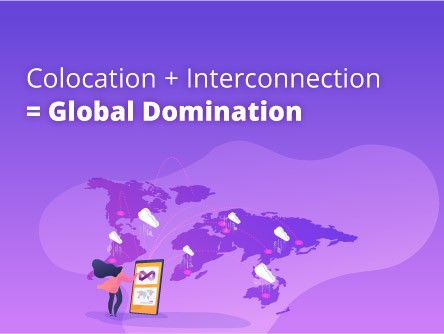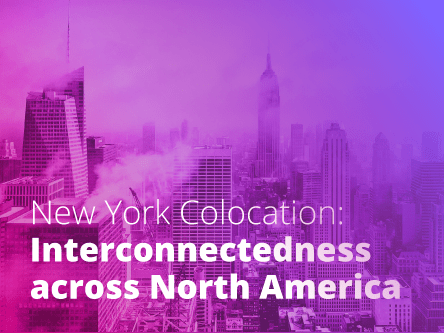In 2020, digital transformation suddenly turned into an urgent mandate. Even digitally-transformed businesses have to rework their infrastructure for secure remote working and wider outreach to customers.
For some, this also includes enhancing logistics and e-commerce workflows as well as self-service processes and data-driven strategies. All of these efforts to keep up with turbulent global changes.
All these lifelines for business survival can put a heavy burden on the existing IT infrastructure. It raises concerns over whether it has sufficient capacity, scalability and redundancy for business continuity. Should the system ever fail or be the subject of cybersecurity lapses, the consequences may mean permanent closure.
Colocation has been a natural pathway for enterprises and many digital providers to deliver services at scale and redundancy. It gives enterprises more control over their survival prospects while the rest of the world continues to ramp up digital transformation.
Businesses can work with their colocation providers to offload unnecessary infrastructure task. This gives them better focus on creating innovative services – and deploying them quickly.
According to a recent report, “COVID-19 will drive some momentum in this market as customers with strained resources will turn to third-party assistance to better manage surges in demand.” Another report noted that the purchase of additional IT infrastructure and backup systems will see an increase.
Worldwide colocation trends
Colocation and interconnection services are defined as the business case of using a third party’s data centre facilities. This includes physical floor/cage/rack space, network capacity, and HVAC/power infrastructure. The customer operates its own servers/storage systems, network equipment, and other types of infrastructure.
According to an IDC study on colocation trends in North America, Europe and the Asia-Pacific region between 2019 and 2020, “The migration to digital platforms, as well as the requirement for seamless and efficient interconnection to network providers, and cloud platforms is strong driver for the colocation and interconnection market for enterprises, content, and service providers.”
Colocation facilities offer additional enhanced and efficient options for service providers and enterprises alike, and will continue to drive growth of the digital ecosystem.
Noting that “ancillary services such as access to virtualised workloads, security services, and on-demand server capabilities will become increasingly important to colocation providers.” The report advised that the key to success will be the ability to offer the most efficient data centres, and leverage highly-automated processes and fortress-like security environments.
Finetuning your Colocation strategy with Interconnection
With recent market intelligence in mind, businesses have to select colocation providers with better long-term vision.
The reality is that traditional colocation, both retail and wholesale, is focused on selling racks and space. It is so commoditised that an enterprise may decide on a provider based on cost and onsite features alone. That is the easy part.
What customers need to understand is that the colocation solution they offered must be ready to interconnect with a broader ecosystem.
The current market condition is seeing global shifts in business models. This means enterprises will need to tap into more global vendors and service providers to restore or strengthen their value chain.
An enterprise renting a traditional colocation package may not enjoy immediate interconnection access to a network fabric of data centres and cloud. Even if it can be done, a long lead time will be required and might not be cost-efficient enough to scale.
A key recommendation from the IDC report is that technology buyers should aim not just for right-match hardware attributes.
They should also aim to have a rich interconnection fabric.
“The best providers will offer a wide range of network providers, internet exchange (IX) facilities, and access to major cloud providers. Some colocation providers’ on-net capabilities that offer wide area network (WAN) scalability and visibility will increasingly become table stakes.”
Packaging global connectivity with colocation
At Epsilon, we provide world-class colocation solutions with seamless interconnection to over 220 data centres, 600 network operators, cloud service providers and internet exchanges.
Any kinds of businesses present at Epsilon Colocation can bolt on this global access quickly and cost-effectively. They do not have to depend on multiple service providers to deliver multiple solutions.
By using our award-winning SDN platform, our colocation customers can extend their network reach with on-demand connectivity. We offer a comprehensive set of services on the platform including data centre interconnect, direct cloud connection and remote peering at global IXs.
Managing colocation and connectivity is as simple as that.







